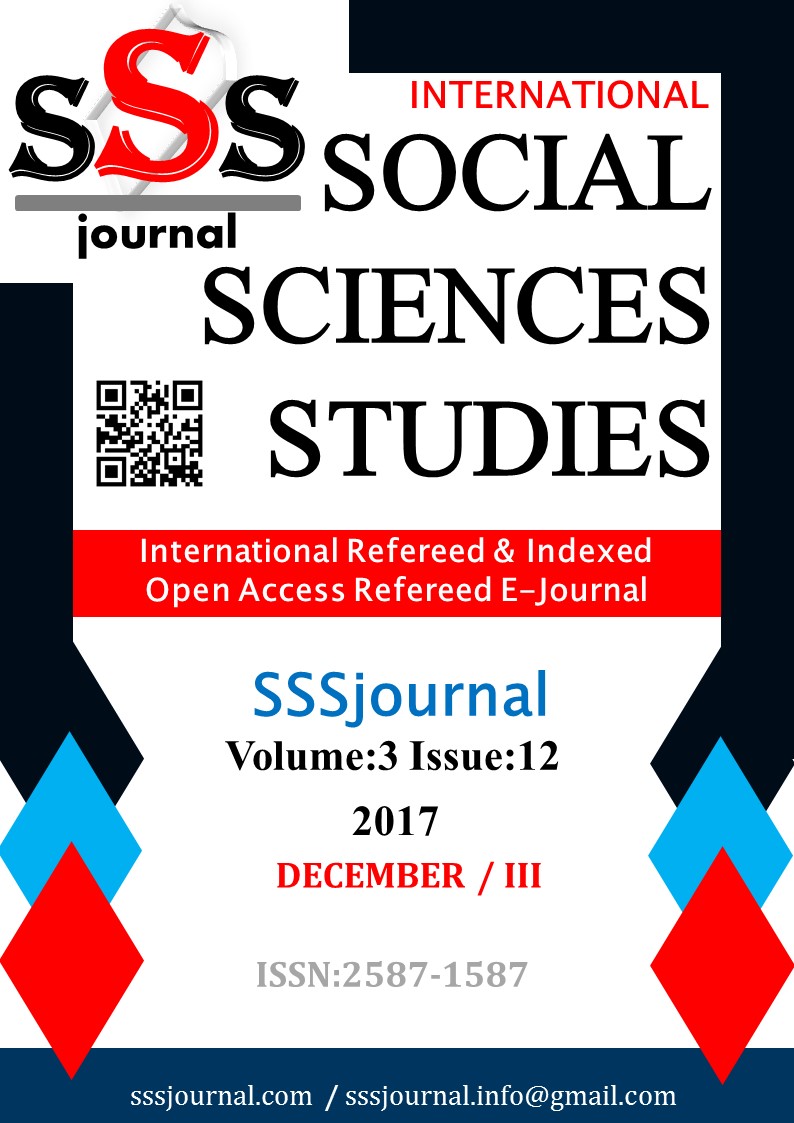Author :
Abstract
Dünyada oluşan küreselleşme süreci, ülkeleri hem bu hızlı gelişimin olumlu etkilerinden faydalandırmak hem de oluşabilecek olumsuz etkilerinden korunmanın yollarını aramaya itmiştir. Ülkeler bir taraftan ticaretin serbestleştirilmesi yolu ile refah seviyelerini arttırırken karşılaştırmalı üstünlüğe sahip olmadığı ülkeleri ise dış ticaretinin dışına itmeye çaba göstermişlerdir. Bu bağlamda Avrupa Birliği bu oluşumu en iyi örgütleyen ve günümüze kadar başarı ile taşıyan bütünleşme modeli olmuştur. Bu bütünleşmenin temelini ise Gümrük Birliği oluşturmaktadır. GB bir taraftan birlik içi ticareti serbestleştirirken ortak gümrük politikaları yolu ile birlik dışı ülkeleri ticaret saptırıcı etki altında bırakmayı amaçlamaktadır. Türkiye ile Avrupa Birliği 1963 tarihinde imzalanan Ankara anlaşması ile bir ortaklık ilişkisi kurmuş ve bu ilişkinin çerçevesini hazırlık, geçiş ve son dönem ile şekillendirmiştir. Son dönem ile 1996 tarihinde taraflar arasında Gümrük Birliği Anlaşması yürürlüğe girmiştir. Bu dönemden günümüze kadar Türkiye ekonomisi, statik ve dinamik olarak değişime uğramıştır. Bu makale 1996 ile 2016 yılları arasında Gümrük Birliği’nin Türk dış ticaretine etkileri ile rekabet, yatırım, maliyet ve teknoloji açısından görülen değişimi inceleme altına almıştır.
Keywords
Abstract
The globalization process in the world has driven countries to seek ways to both benefit from the positive effects of this rapid development and from the negative effects that may arise. Countries have increased welfare levels by liberalizing trade from one side, while countries that did not have comparative advantage have tried to push them out of foreign trade. In this context, the European Union has become the model of integration that best organizes this formation and carries with it the day-to-day success. The basis of this integration is the Customs Union. GB aims to free trade within the union from one side, but to exert unfair trade-distorting influence through common customs policies. The European Union and Turkey signed on in 1963 formed a partnership relations with Ankara agreement and the framework for the preparation of this has shaped the transition and final period. The Customs Union Agreement entered into force between the parties in the last period and in 1996. From this period until today, Turkey's economy has undergone changes as static and dynamic. This article examines the effects of the Customs Union on Turkish foreign trade between 1996 and 2016 with respect to competition, investment, cost and technology.
Keywords
- AB Genişleme Politikasına İlişkin 2016 Bildirimi: 2016, s 101
- AB Genişleme Politikasına İlişkin 2016 Bildirimi: 2016, s 101
- Arslan T. (1997). GÜMRÜK BİRLİĞİ’nin Türkiye Ekonomisi Üzerine Etkileri, Pamukkale Üniversitesi Sosyal Bilimler Enstitüsü Yayınlanmamış Yüksek Lisans Tezi, Denizli, s. 63
- Atmaca R. (1995). GÜMRÜK BİRLİĞİ’nin Dış Ticaretimize Etkisi, Ankara, Gümrük Birliği Dergisi, 17(3): 100-102
- Bakacak B.Ö. & Şentürk A. (2017). Gümrük Birliği’nin Güncellenmesi, Gümrük ve Ticaret Uzman Görüş, 44-45:34-39
- Bahadır S. (2017). “Gümrüklemede En Önemli Maliyet “Gümrükleme Yöntemi”, Dünya gazetesi Bahadır S. (2017). “Trafik Sapmasına Toplu Konut Fonu Engeli”, Dünya gazetesi
- Çetintaş H.S. (2003). Bilgisayarlı Gümrük İşlemleri, Ankara, Gümrük Dergisi, 12(43): 210-211
- Çanakçı İ. H. (2005). Yatırım Ortamının İyileştirilmesi ve Doğrudan Yabancı Sermaye Yatırımları, ASOMEDYA (Ankara Sanayi Odası) Yayınları, s. 14
- Çiftçi H. (2003). Dış Ticaret ve Gümrük Politikalarının Ekonomideki Rolü, Ankara, Gümrük Dergisi, sayı:43, s.49
- Çulha H. (2008). Türkiye’nin AB Ortak Ticaret Politikasına Uyumu- 1. Bölüm, 7(16): 43-47Demir O. (1998). GÜMRÜK BİRLİĞİ’nin İki Yılı, , Dış Ticaret Dergisi, Ankara, 11(3): 54
- Erbay H. (2010). AB ile İlişkiler Kapsamında GÜMRÜK BİRLİĞİ’nin Türkiye’nin Ekonomisine ve Milli Güvenliğe Etkisi, Gümrük Uzmanları Derneği, 24:8-25
- Germir H. N. & Korkmaz M. & Yücel A. S. & Aytaç A. & Şahbudak E. & Şen E. & Yorulmaz M. (2016).“An Analysis of the Foreign Trade and the Factors Affecting Trade”, International Peer-Reviewed Journal of Humanitiesand Academic Sciences (15), (128-147).
- Günuğur H. (1996). Türkiye–Gümrük Birliği İlişkileri Tarihçesi, T.C. Merkez Bankası AB El Kitabı, s.16
- Güven Y. (2008). Türkiye’de 1980 Sonrası Donemde Doğrudan Yabancı Sermaye Yatırımlarının Sektörel Analizi ve Ekonomik Kalkınmaya Etkisi, Dış Ticaret Dergisi, s. 75, Eskişehir
- İKV (1971). Ankara Anlaşması ve Katma Protokol Metinleri Ve Ekleri, İktisadi Kalkınma Vakfı Yayınları, s.6
- İKV Bülteni: “Gümrük Birliği’nin Türk Ekonomisine Etkileri”, İstanbul, İKV:125, s. 4 Karluk R. (1997). Türkiye Ekonomisi, Beta Yayınları, İstanbul, s.212
- Kolçak M. (2013). “Dış Ticaret Vergilerinin Türkiye Ekonomisine Etkileri”, Atatürk Üniversitesi İktisadi ve İdari Bilimler Dergisi,(4)27: 188-209
- Manisalı E. (1996). Gümrük Birliği’nin Siyasal ve Ekonomik Bedeli, Nadir Kitap, s.255
- Manisalı E. (2000). İçyüzü ve perde arkasıyla Avrupa çıkmazı Türkiye- AB ilişkileri, İstanbul, Otopsi Yayınları, 3. Basım, s.130
- Morgit O. (1995). GÜMRÜK BİRLİĞİ ve Türkiye’nin Üçüncü Ülkelerle Ticari İlişkilerine Etkileri, Ankara, Gümrük Birliği Dergisi, 17-18: 105
- Seyidoğlu H. (1996). Uluslararası İktisat, Güzem Yayınları, İstanbul, 1996, s. 208Şen, E.(2017). Kurumsallaşma ve Kurumsal Yönetişim, İstanbul: Beta Yayınevi.
- Şen, E., Ateşoğlu, H., Akdoğan, S. (2017), Okul Yöneticilerinin Liderlik Davranışları, PerformansUygulamaları ve Kurumsallaşmaya İlişkin Öğretmen Görüşlerinin Çeşitli Değişkenler Açısından İncelenmesi, İşletme Araştırmaları Dergisi, 9(3),572-593.
- Türkeş A. (2009). “AB-Türkiye İlişkilerinde Yarım Asır”, Gümrükte Uzman Görüş, 8(21): 48-56
- Uyar, S. (2000). GÜMRÜK BİRLİĞİ’nin Türkiye Ekonomisi Üzerindeki Etkileri, Dış Ticaret Dergisi, 5(17):
